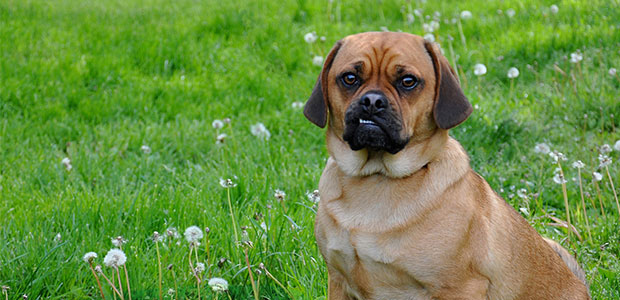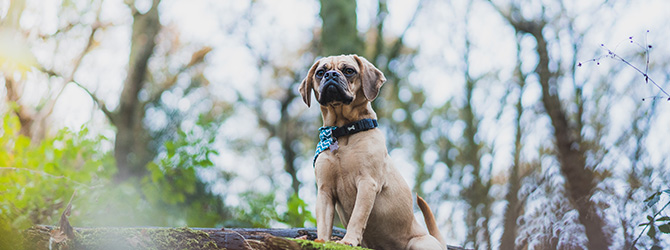The Puggle: thinking of getting a Puggle?
Energetic and full of character, a Puggle will make the perfect companion for an owner who’s keen to spend lots of quality time with them.
Let’s take a closer look at the Puggle.
Place of origin: USA
How big do Puggles get? 20 – 38cm
How heavy are Puggles? 7 – 14kg
Life Expectancy: 12 – 14 years
Colour: Fawn, Red, Tan, Lemon, Black
Please note: A dog’s exercise, training/stimulation and grooming requirements can depend on several factors such as age and health. The same goes for ongoing costs of ownership. For advice on one specific dog, we always advise chatting with a vet.
How much exercise does a Puggle need?
Puggles are energetic and will play whenever they get the chance. They need 2 sizeable walks every day.
Just like Pugs, Puggles are prone to obesity, so it’s important they get the correct amount of exercise.
Training: how to train a Puggle
Puggles are typically sociable and easy-going. They love nothing more than being in the company of their owners so they’ll happily spend lots of quality time with you – and should come back to you willingly when called.
They can be stubborn, and therefore not the easiest breeds to train, but with enough patience and positive reinforcement, your Puggle should become well-trained and sociable in no time!

Grooming: do Puggles shed?
If you think of yourself as house-proud, a Puggle may not be the breed for you. They’re notorious for shedding, so you’ll find yourself hoovering up after them quite a lot.
That said, brushing your Puggle every day will help to keep their coat in tip-top condition. Bathe them every month or so, too, to keep them nice and clean.
Complete your Puggle’s grooming routine with regular tooth brushing, nail clips and ear checks.
Puggle temperament, socialising and ideal home environment
Puggles are incredibly sociable breeds. If you’re looking for a dog to spend lots of quality time with, both indoors and out, a Puggle may be just the breed for you!
Their high sociability does mean that they’re prone to separation anxiety, and they can bark a great deal when left alone. If you live in close proximity with others (in a flat or apartment, for example) and you’re out of the house often, a Puggle may not be the best breed for you. You can ease their seperation anxiety through training, however.
Typically, Puggles get along well with children and other pets too.
Cost of owning a Puggle
When considering the lifetime cost of owning a Puggle, remember to take into account:
- Food and diet requirements
- Veterinary care
- Pet insurance
- Kennels or dog sitters
- Regular grooming costs
- Toys and equipment
Need more info?
For more info on finding the best dog breed for you and your lifestyle, have a chat with your vet.

